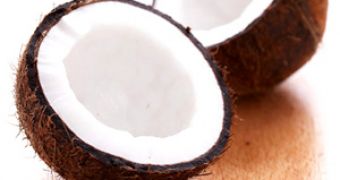The days when we used coconuts in cakes or tropical drinks could soon be long gone, as the specialists at Ford and The Scotts Miracle-Gro Company are researching the use of coconut fiber reinforcement for molded plastic parts in vehicles.
Based on the “Reduce, reuse and recycle” concept, Ford aims to reduce the use of petroleum and make the parts lighter and more natural-looking with the use of coconut coir, or husks.
Coconut coir is a natural fiber from the husk of a coconut. Once the coconut coir comes to Ford, researchers combine it with plastic to deliver additional reinforcement to the part while eliminating the need for some petroleum.
Along with making use of a renewable resource, the new part would be lighter in weight. The natural long fibers also are visible in the plastic and offer a more natural look than typical materials.
In the interior, the material could be used in storage bins, door trim, seat trim or center console substrates. It could also potentially be used on underbody and exterior trim.
Ford is currently testing the material’s properties to ensure it passes all of the company’s durability tests. Coconut coir is very difficult to burn, and Ford is researching whether it has natural flame-retardant properties.
“This is a win-win situation. We’re taking a material that is a waste stream from another industry and using it to increase the sustainability in our vehicles,” explained Dr. Ellen Lee, technical expert for Plastics Research at Ford.
“We continue to search for innovative renewable technologies that can both reduce our dependence on petroleum as well as improve fuel economy,” she added.
The American automaker has already used eco-friendly materials in its vehicles, including soy foam seat cushions and head restraints, wheat straw-filled plastic, castor oil foam in instrument panels, recycled resins for underbody systems, recycled yarns on seat covers and natural-fiber plastic for interior components.

 14 DAY TRIAL //
14 DAY TRIAL //